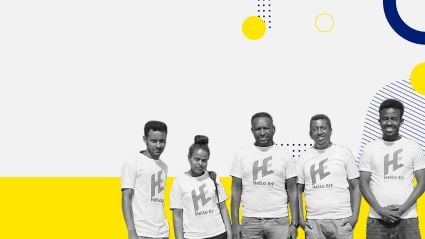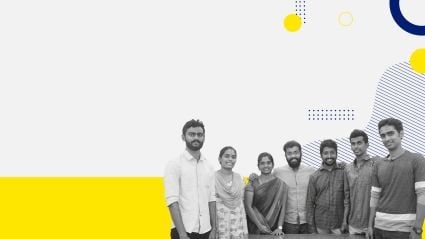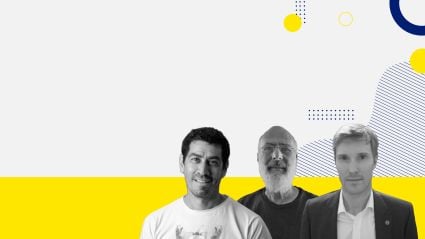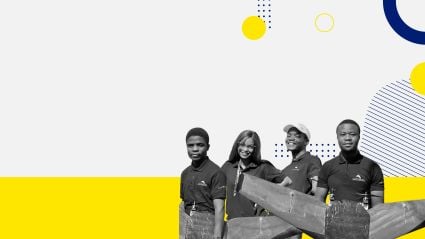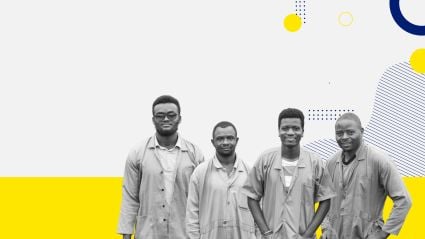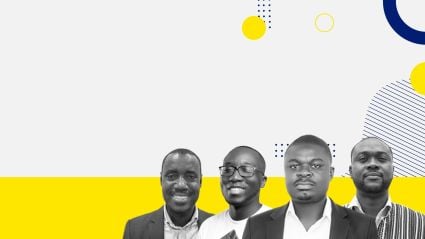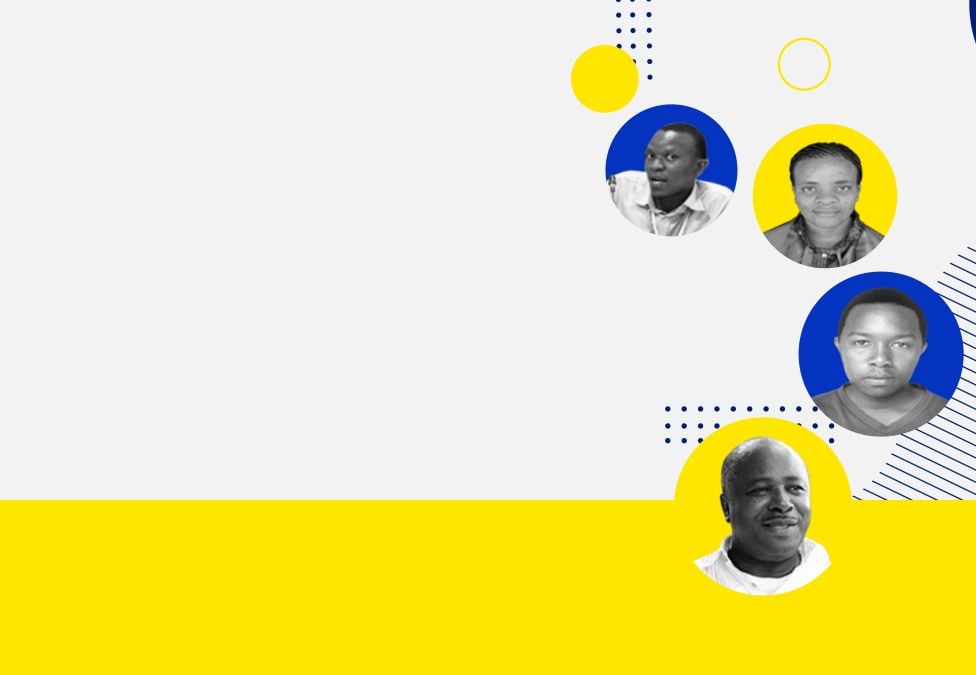
Pictured clockwise from top: Edmond Ng’walago Sanginga (CEO and Founder), Elizabeth Sizya (Operations Manager), Karimu Katwabi (Technical Manager), and Nteranya Sanginga (Business).
Milken Institute: Tell us about your team?
Edmond Ng’walago Sanginga: Our team is composed of five creative minds from diverse sectors and a dedicated international agribusiness adviser connected to the International Institute of Tropical Agriculture Youth Agripreneur Incubation. I am the team leader and a logistician cum climate smart agribusiness professional. I co-founded Ng’wala Inventions Company in Tanzania in 2020. I rejected two employment offers in the transport sector and joined the Youth Agripreneur Incubation program in organic agriculture at the International Institute of Tropical Agriculture in Tanzania to fulfill my passion of enhancing African agribusiness.
I have five years of experience in international sustainable agribusiness practices, leading agribusiness projects, and attending international agribusiness conferences both as a panelist and participant. I am the former assistant agribusiness manager of youth agripreneur projects and agribusiness development officer of Technologies for African Agricultural Transformation Program.
I noticed the inaccessibility and unaffordability of organic fertilizer and pesticides, the situation that encourages the use of dangerous chemical farm inputs spoiling arable land, water, and environment as well as increasing the cost of crop productions to small holder farmers. To make bio-pesticides and bio-fertilizer accessible at the lowest price, on time, on farm, on demand, on pay, as-you-farm basis, and on credit, we came up with Automated Solar Powered Bio-pesticides and Bio-fertilizer Delivery Machines.
What inspired you to participate in the Milken-Motsepe Prize in AgriTech?
The Milken-Motsepe Prize in AgriTech is one of a kind. It is a prize prepared in accordance with African agriculture sector requirements and needs. Not only does the prize lift the Finalist AgriTech entrepreneurs to a global level, but it also offers enough time for designing and testing the prototype in the real environment. The Milken-Motsepe Prize in AgriTech truly aims for the success of global AgriTech entrepreneurs and the success of small holder farmers. It is one among very few global prizes that really wants to eradicate hunger and poverty among small-holder famers in Africa.
Apart from other global prizes, the Milken-Motsepe Prize in AgriTech provides opportunities to its winners to acquire first-class entrepreneurship training from globally renowned institutes and investing communities. The prize will make sure that AgriTech entrepreneurs do not fail in their journey because of skills and knowledge challenges after been supported with funds. I hope at the end of this prize I will create an outstanding economic contribution to the African agriculture sector. This is possible with the great support from the Milken-Motsepe Prize in AgriTech.
How will your concept increase economic value to farmers in Africa?
Ng’wala Inventions has developed automated, solar-powered bio-pesticide and bio-fertilizer delivery machines with kiosks to provide extension services before delivering bio-pesticides and bio-fertilizer to 100 million rural farmers in Africa. Solar-powered bio-pesticides and bio-fertilizer delivery machines help small holder farmers (who are 70 percent women and youth) to access bio-pesticides and bio-fertilizer at the lowest price, on time, on site, on demand, pay-as-you-farm, and on credit, paying using mobile money and electronic card. The delivery machines are installed around the farms, replacing the use of single-use bottles and packages, saving time and cutting transportation costs, and therefore lowering crop production costs and enabling increases in income and yields from one ton to two to three ton per hectare. In general, we are helping smallholder farmers to create wealth and value and improve their living standard, shifting from living under $2 to $5 per day, while increasing climate resilience and environment conservation.
What sets you apart from other teams in this competition?
It is often said that “transportation is common practice to every farmer,” and it is assumed that transport increases crop production cost up to an average of 30 percent. I was born in a peasant family. At the age of seven, when I was in standard three, my mother sent me to the agro-shops to purchase pesticides and fertilizer. It was a bit far (50 km from the farm/home). The long distance from home to agro-shops caused me to spend a lot of time on the way as well as transport cost, which increased the total cost of crop production, causing hunger and poverty to my family and community.
When I grew up, at the age of 23, I found the situation still existing and decided to come up with a solution of designing and operating automated, solar-powered bio-pesticides and bio-fertilizer delivery machines, making farm input accessible to small holder farmers at lowest cost, on time, on demand, and on credit. Today, we help thousands of small holder farmers to increase yields and income. We expect that by 2025 we will provide access to organic farm inputs to millions of small holder farmers, making sure 100-150 million people are lifted from hunger and poverty.
